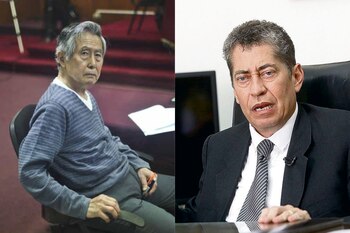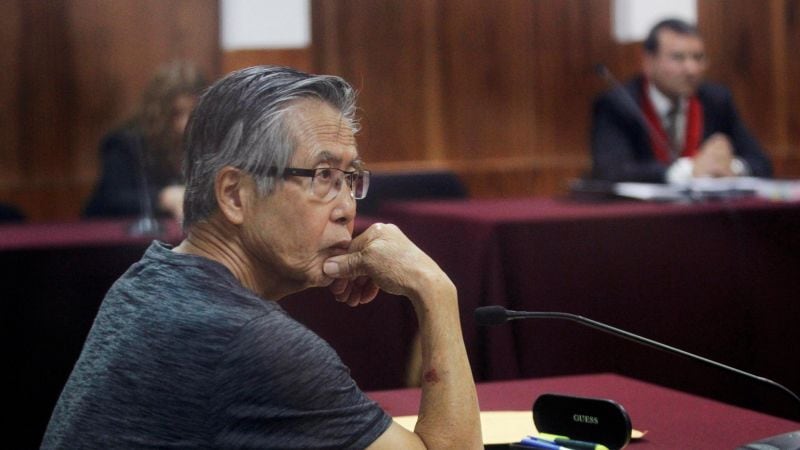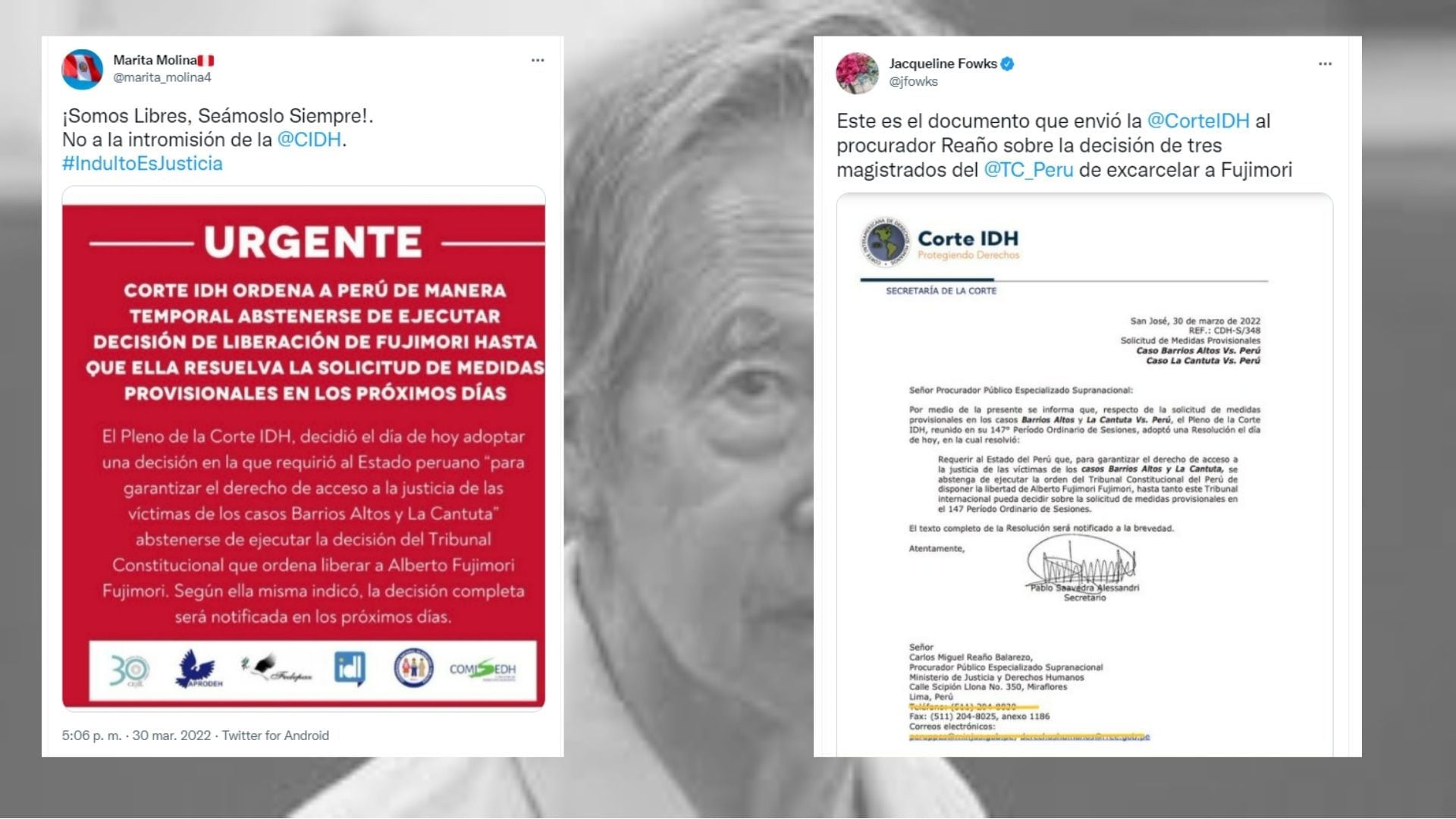
The past still haunts Alberto Fujimori who, despite the pardon granted, must still answer to justice for the case Pativilca, Spain. For the judge of the Constitutional Court, Eloy Espinosa-Saldaña, the former president could receive a conviction if he is found guilty in the trial he is currently facing since the pardon granted in 2017 it only takes into account crimes for which he had already been convicted.
“The pardon is not a shield that protects you for a lifetime, it protects you from the crimes you were charged with at that time and among those charged to you was not the Pativilca case. Then Fujimori can be charged and pardoned by the Court if that were the case, because he is terminally ill, but this case continues,” the magistrate told Canal N.
On the authority competent to review the Fujimori case, Espinosa-Saldaña assured that it is the Supreme Court in charge. “The IACHR is the one that orders that the case be heard by the Supreme Court. Jurisdiction in criminal proceedings does not end when you are sentenced, it ends when you serve your sentence and a procedure is carried out called the rehabilitation procedure (...) That is why it is the Supreme Court that has to evaluate the Fujimori matter and not the Constitutional Court,” he added.
It should be recalled that on March 24, after the decision of the TC to restore the humanitarian pardon in favor of Fujimori, the judiciary issued an 18-month ban on leaving the country against the former president for the case of which he is now a member.

The prosecution has requested 25 years in prison for Alberto Fujimori for the deaths of John Calderón Ríos, Toribio Ortiz Aponte, Felandro Castillo Manrique, Pedro Aguero Rivera, Ernesto Arias Velásquez and Cesar Rodríguez Esquivel, who were kidnapped, tortured and killed by Grupo Colina in early 1992. Among the other 24 persons accused are Vladimiro Montesinos, former army commander general Nicolás Hermoza Ríos; Carlos Pichilingue Guevara, administrative head of the Colina group; Santiago Martín Rivas, among others, for qualified homicide and illicit association.
SUSPENDED RELEASE
On Monday, March 28, the Constitutional Court published the ruling ordering the immediate release of Alberto Fujimori after the pardon granted by Pedro Pablo Kuczynski was restored in late 2017. The 102-page document approved by most tribunes could not be made following a decision by the Inter-American Court of Human Rights that ordered the Peruvian State to refrain from executing the TC order.
In the attached resolution, the IACHR justifies its pronouncement by citing Article 63.2 of the American Convention on Human Rights, which states that “in cases of extreme gravity and urgency, and when it becomes necessary to avoid irreparable harm to persons, the Court, in matters before it, may take measures interim that it deems relevant”.

The order was given “with the aim of not causing irreparable harm to the victims' right of access to justice prior to the possibility of examining the requested interim measures” at the 147th Regular Session of Sessions. Thus, on April 1, the representatives of the victims, the Peruvian State and the Inter-American Commission on Human Rights will be convened to a public hearing to discuss the provisional measures presented by the victims' representatives of the La Cantuta and Barrios Altos cases. These, according to the publication of the IACHR, were presented to “guarantee access to justice for victims.”
KEEP READING
Últimas Noticias
Debanhi Escobar: they secured the motel where she was found lifeless in a cistern

The oldest person in the world died at the age of 119

Macabre find in CDMX: they left a body bagged and tied in a taxi
The eagles of America will face Manchester City in a duel of legends. Here are the details

Why is it good to bring dogs out to know the world when they are puppies




